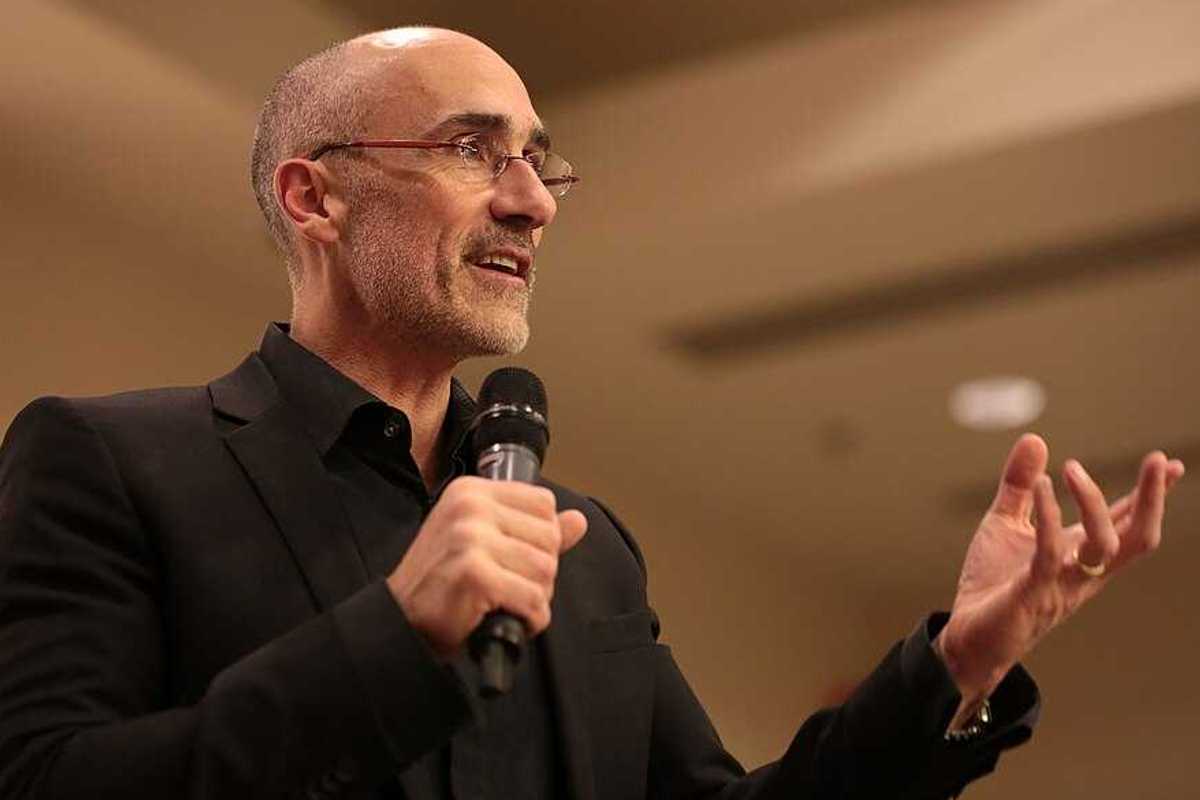Happiness researcher reveals the 'enduring' secret to being happy in the second half of life
It goes against what Mother Nature may be telling you.
Arthur Brooks speaking.
Happiness researcher Dr. Arthur Brooks says that one of the most important things people can do as they enter the second half of their life is to focus on internal well-being rather than satisfying all of their wants. Even though this may feel like it runs counter to how many live the first half of their lives, he says it's the best way to find joy in middle age and beyond.
Brooks is a professor at Harvard University, author of From Strength to Strength and Build the Life You Want (with Oprah Winfrey), and is a lifelong student of the science of happiness. He says the key to finding it in the second half of life is recognizing when enough is enough and reducing unnecessary desires.
“What happy, successful people do in the second half of their lives is they go from adding to subtracting," Brooks says. "Mother Nature tells you that satisfaction comes from having more. More of what? More money, more power, more pleasure, more honor, more everything. More. But that's not the secret. The real formula for happiness is all the things that you have divided by the things that you want.”
@evancarmichael The Real Formula of Happiness Speaker: Dr. Arthur Brooks Source: Dr. Arthur Brooks #motivationalquotes #motivation #inspirational #happiness #arthurbrooks
For Brooks, finding happiness later in life is an inside job: we analyze our desires and decide which ones we can cast aside. It’s a worthwhile practice, given that as we age, our ability to achieve many of our desires is compromised by the aging process.
“There's two ways for you to get greater satisfaction," Brooks continues. "There's the old, inefficient way of have more, have more, have more. Or there's the efficient, enduring way of wanting less."
How to manage your wants, according to Brooks
It's easy to tell people to manage their desires, but how do they come up with a strategy for doing so successfully? He says one way is to audit your desires by putting them to a simple litmus test.
“One helpful exercise is to list your major goals and ask: Would this still matter to me if no one else knew I achieved it? If the answer is no, it may not be a goal rooted in meaning,” he writes on LinkedIn.
Brooks also believes that we can simplify our lives by redefining what it means to be a success.
“In research on midlife satisfaction, those who reoriented their ambition from status to service, especially men, reported higher purpose and deeper relationships over time,” he adds.
- YouTube www.youtube.com
Another meaningful way we can find greater happiness is by setting some of our wants aside and being grateful for what we have. Because if you aren't grateful for the positives you have in life, they will never stick to your bones or be truly nourishing.
“Practice gratitude for what you have," Daniel Levitin, professor emeritus of psychology and neuroscience at McGill University, writes in Successful Aging. "This is motivating, alters brain chemistry toward more positive emotions, and oils the pleasure circuits of the brain."
There’s something graceful about accepting a new challenge in life as we get older: learning to have the internal strength to set aside what we truly don't need and to nurture what we do, such as our relationships, friends, and community. Brooks' perspective is a valuable tool that will keep many from being led astray as they age by chasing things they no longer need.
This article originally appeared last year


